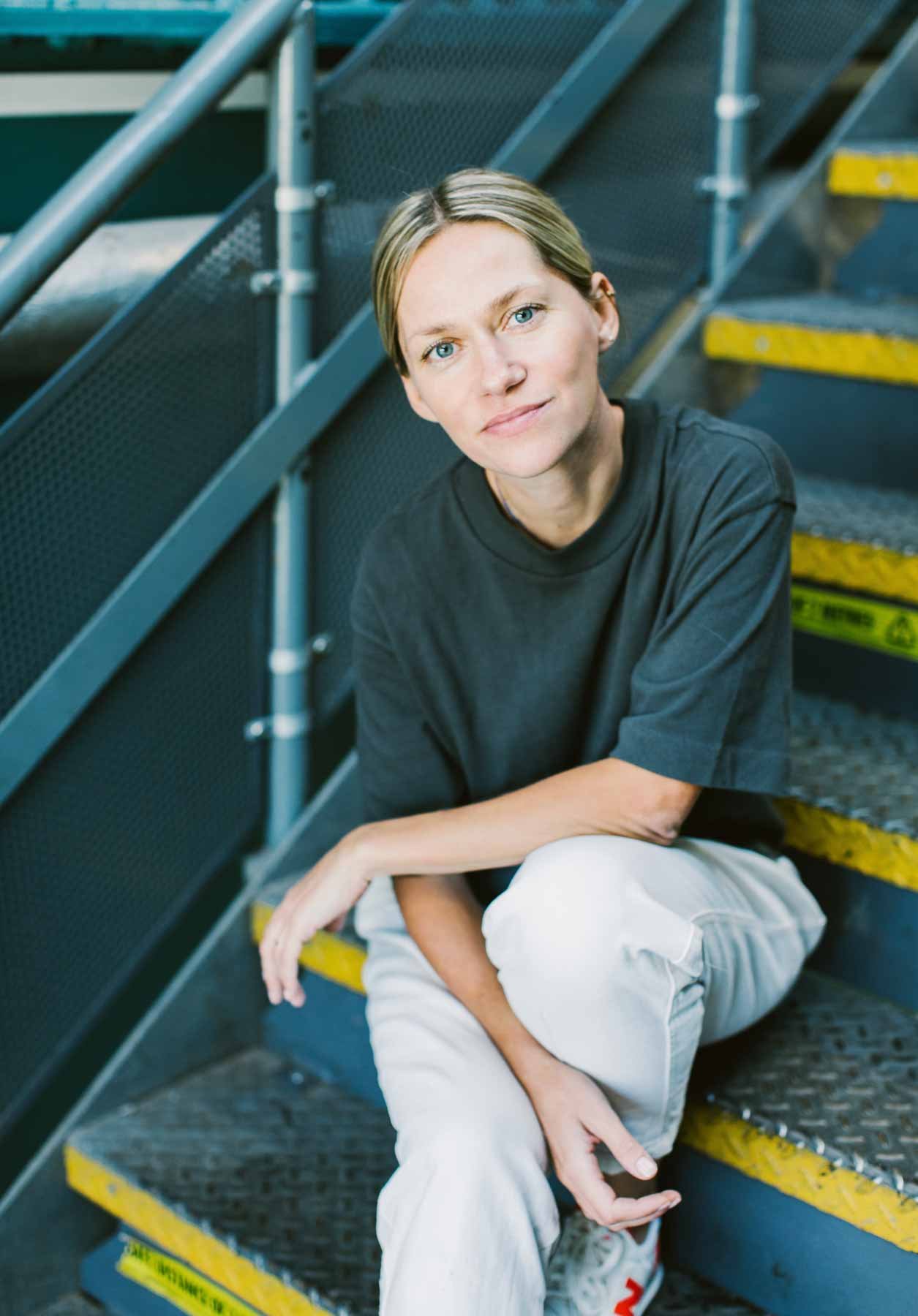Reduce. Reuse. Recycle.
Images courtesy of BEEN London
Fast fashion just doesn’t cut it anymore—so what’s the answer? Olivia Woodhouse interviews Genia Mineeva, founder of BEEN London, a fashion accessories brand that uses leather alternatives made entirely from waste.
It’s estimated that around 300,000 tonnes of clothing end up in household bins every year, with about 20% going to landfill and 80% getting incinerated—both releasing toxic chemicals. Most of these items will have been worn only a handful of times according to a UK study by Business of Fashion and McKinsey & Company on the State of Fashion in 2019, which found that one in three shoppers considers clothes old after one or two wears.
This, along with CO2 emissions, poor working conditions, low pay for garment workers and overproduction caused by trend-driven buying are the reasons why the fashion industry is the second biggest pollutant globally after the oil and gas sector.
In recent years online fashion retail giants Boohoo, Pretty Little Thing and ASOS among others have pledged to become more sustainable, and it appears nothing is off the table—supposedly. Their sustainability reports detail plans to introduce sustainable practices at every stage of production, but with little clarity on the terms being used and few statistics to back them up, who can consumers really trust?
Genia Mineeva, founder of London-based handbag brand BEEN London advises shoppers to be sceptical of too-good-to-be-true claims. “Anyone saying ‘100% sustainable’ or calling themselves a sustainable brand would generally raise a lot of questions for me. Sustainability isn't black and white, but more of a scale,” she says.
BEEN London was born out of an “incredible curiosity” and the desire to provide an alternative to the status quo. “I never planned to run an accessories brand, to be honest. BEEN London was born more or less as a campaign,” she admits. “My background is in journalism and campaigning, so the more I learned about the waste we're all creating, the more I wanted to do something about it.”
What made Mineeva interested in sustainability was a need to understand how someone without a background in fashion “could disrupt the constant greenwashing and make a no-nonsense product made entirely from waste”.
“The idea was simple—to take materials that would normally end up in a landfill and turn them into fun premium accessories.”
After completing a degree in sustainability, studying accessories design at London College of Fashion, and pairing up with the last remaining leather studio in East London, the first ever BEEN London bag was created.
Today if you scroll BEEN London’s collections, you’ll find bags made with offcuts of leather, nylon derived from discarded fishing nets and carpets, and recycled cotton. Even the vegan leather alternatives utilise the zero-waste approach from the use of pineapple leaves to apple skin and cores.
But that’s just part of what makes BEEN London special. Mineeva explains that the circular ethos applies to all parts of the company: “We start with waste, we design with zero-waste cutting patterns in mind, we manufacture locally and pay London Living Wage, we only use materials that divert waste from landfill, and we ship to customers by bike.”
Materials are usually the starting point, “One of our latest collaborations DHL x BEEN London upcycles rather than recycles. We used discarded advertising banners from Formula 1 racetracks to create a unisex limited edition capsule,” she says.
Mineeva loves the storytelling behind it all just as much as she loves how they look.
“The linings are made from premium recycled cotton from Italy, our zips are made in Turkey from single-use plastic bottles and our laptop cases are lined with felt made out of discarded IKEA and KLM uniforms,” she says.
BEEN London offers free repairs to ensure a product’s life cycle is extended; make all of their products in East London; and will even plant a tree for every bag sold. All of this in turn produces on average 87% less CO2 emissions per product—pretty impressive.
But what’s the key to running a sustainable business successfully? For Mineeva it’s simple: “We don’t cut corners, we don’t have secrets, we just make products the way everyone who cares about people and the environment would like them to be made.”
Genia Mineeva
It’s clear the main takeaway for anyone aspiring to start their own sustainable fashion line is, in Mineeva’s words, “make a good product that people love”. A seemingly obvious solution but one that is often overlooked by profit-first companies looking to produce on-trend garments at increasingly cheaper price tags.
For those just starting on the journey, her advice is to “have a system of measuring your impact—start small!” She believes in “all of us doing sustainability imperfectly rather than just a few doing it well”.
“We see our role as showing that it’s possible to do things differently and still create a cool product,” she says. But change is definitely happening, and according to Mineeva, “it's mostly led by consumers demanding change, rather than all those profit-first companies genuinely meaning it, but it's irreversible.”




